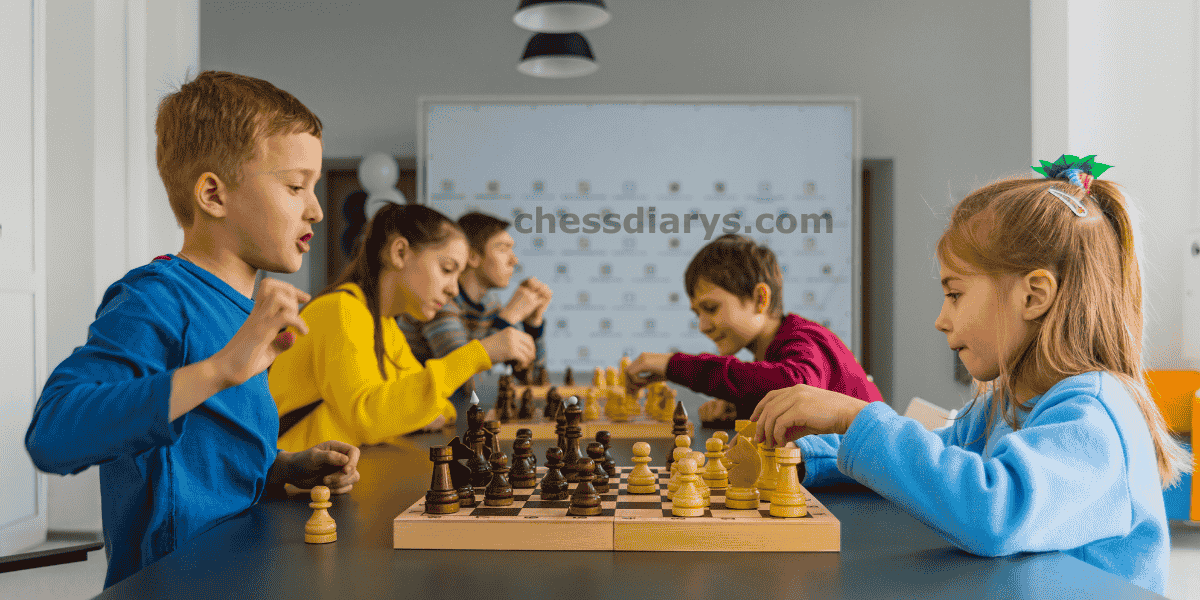Chess is a game of strategy, patience, and foresight, and like any other skill, it takes time to master. However, even as a beginner, there are some foundational concepts that can significantly improve your game and set you on the path to becoming a skilled player. In this article, we’ll go over 15 essential chess tips for beginners that every beginner should keep in mind when playing.
Control the Center
One of the first things you should focus on in any chess game is controlling the center of the board. The four central squares (e4, e5, d4, and d5) are the most powerful spaces on the chessboard. By placing your pawns and pieces in these central squares, you can dominate the game’s tempo, giving you more freedom to maneuver and making it difficult for your opponent to launch an effective attack. The center is where most of the action happens, so getting control over it early is a key part of a successful opening strategy.
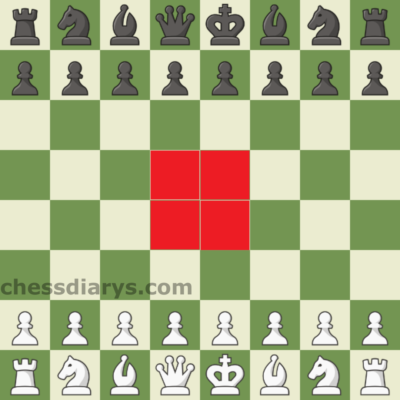
Develop Pieces Early
In chess, developing your pieces refers to moving your pawns and pieces (such as knights and bishops) out from their starting positions into more useful squares. Avoid leaving your pieces on their original squares for too long. Moving your knights and bishops out early on will help you control more of the board, open lines for your rooks and queen, and prepare for castling. A well-developed position allows you to respond to your opponent’s moves with flexibility and strength. Remember, chess tips for beginners often emphasize the importance of early development to avoid being caught off guard.
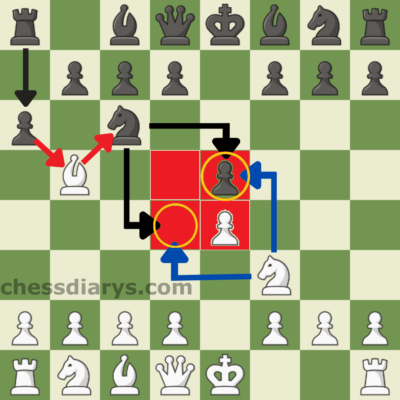
Protect Your King
Your king is the most important piece in the game, and its safety should be your top priority. One of the best chess tips for beginners is to castle early in the game. This move not only protects your king but also brings your rook into play, which can be essential in the middle game. Additionally, avoid leaving your king exposed to attacks from your opponent’s pieces, and be mindful of any threats that may arise from both sides of the board.
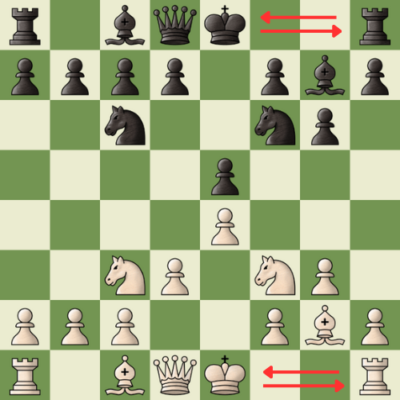
Pawn Structure Matters
The way you structure your pawns is critical to your overall strategy. Avoid creating weaknesses such as isolated pawns (pawns with no neighboring pawns) or doubled pawns (two pawns stacked on the same file). Both situations can create holes in your defense that your opponent can exploit. Focus on keeping your pawns connected and controlling important squares. A strong pawn structure can create a solid foundation for your pieces to operate effectively. Good chess tips for beginners include understanding the importance of a solid pawn structure early on to avoid weak spots.
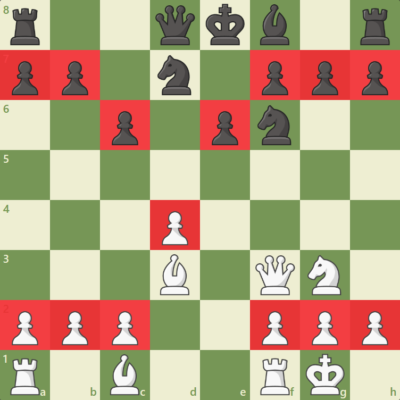
Use All Pieces
In the opening phase of the game, it’s crucial to develop all of your pieces. While knights and bishops are often moved early on, make sure you bring out your rooks and queen when appropriate. Don’t leave any piece unused for too long. Every piece in chess has a role to play, and by using them effectively, you can apply pressure on your opponent from multiple angles. The more pieces you have working together, the more opportunities you’ll have to outplay your opponent. This is one of the most common chess tips for beginners, as many novice players tend to ignore their less mobile pieces early in the game.
Think Ahead
Chess is all about thinking ahead, and the best players anticipate their opponent’s moves and plan several turns in advance. When making a move, don’t just think about what you’re doing right now—consider what your opponent might do in response and how your move will influence the future positions. Try to predict your opponent’s next few moves and think about how to counter them effectively. This ability to plan ahead will help you gain a strategic advantage and is one of the most essential chess tips for beginners.
Trade Carefully
Exchanging pieces can be a double-edged sword in chess. While sometimes it’s necessary, you should always think carefully before trading pieces. A favorable trade occurs when you capture a piece of greater value than the piece you sacrifice. Avoid trading your pieces unless it gives you a strategic advantage, such as improving your position or gaining material. Generally, try to trade pieces when you’re ahead, as this can simplify the game in your favor. One of the chess tips for beginners is to learn when to trade and when to hold off, especially in the opening and middle phases.
Learn from Mistakes
Every chess player, no matter how skilled, makes mistakes. However, the key to improving is learning from those mistakes. After each game, especially if you lose, take the time to review the game and analyze your moves. Identify the mistakes you made and think about what you could have done differently. By learning from your errors, you will avoid repeating them in the future and gradually improve your game. This is a key element in chess tips for beginners—embracing failure as an opportunity for growth.
Practice Tactics
Chess tactics are short-term maneuvers that can gain you a material advantage or put your opponent in a difficult position. Common tactics include forks, pins, skewers, and discovered attacks. Learning these tactics is essential for any beginner, as they can quickly turn the tide of the game in your favor. There are many resources available online, such as puzzles and exercises, that can help you practice these important skills. Practicing tactics is one of the most important chess tips for beginners to build a tactical awareness.
Study Endgames
While the opening and middle game often grab the most attention, the endgame is just as important. A good understanding of endgame techniques will help you convert an advantage into a win or hold a draw when you’re at a disadvantage. Study key endgame principles, such as king and pawn versus king, the importance of the opposition, and how to checkmate with a king and queen versus a lone king. The more comfortable you are in the endgame, the better you’ll be able to handle different game situations. Including endgames in your study is one of the most essential chess tips for beginners to improve consistency.
Watch Opponent’s Moves
It’s easy to get caught up in your own plans and ignore your opponent’s moves, but this is a mistake. Always pay attention to what your opponent is doing and try to understand their intentions. By noticing threats and patterns in your opponent’s play, you’ll be able to adapt your strategy accordingly. Chess is a two-player game, and the key to success is often as much about anticipating your opponent’s next move as it is about executing your own plan. Being aware of your opponent’s moves is another important chess tip for beginners.
Maintain Focus
Chess requires intense focus, and even a momentary lapse in concentration can cost you a game. Keep your attention on the game at all times, especially during critical moments. If you find your mind wandering, take a deep breath and refocus on the position. In long games, consider taking short breaks between moves to refresh your mind, but always stay in the game mentally. Staying focused and avoiding distractions is an essential chess tip for beginners to avoid careless mistakes.
Control Emotions
Chess can be an emotional game, especially when things aren’t going your way. However, it’s important to keep your emotions in check. Anger, frustration, or overconfidence can cloud your judgment and cause you to make poor decisions. Stay calm and composed, and remember that chess is about strategy, not feelings. Keep a level head, and you’ll make better moves throughout the game. Controlling your emotions is another key chess tip for beginners to master over time.
Learn Openings
While you don’t need to memorize hundreds of opening variations, it’s helpful to familiarize yourself with some basic opening principles and a few specific openings. The main goals in the opening are to develop your pieces, control the center, and ensure the safety of your king. Learn the basic ideas behind common openings like the Ruy Lopez, Italian Game, or Queen’s Gambit, and try to understand the reasons behind the moves, not just the moves themselves. Learning openings is one of the most essential chess tips for beginners to get a good start in the game.
Enjoy Learning
Finally, remember that chess is a game meant to be enjoyed. While it can be competitive, it’s important to have fun with the process of learning and improving. Celebrate your victories, learn from your losses, and keep pushing yourself to become better. As you gain experience, you’ll find that chess becomes not only a challenge but also an exciting and rewarding hobby. The ultimate chess tip for beginners is to enjoy the journey, no matter where you are in your learning process.
By following these chess tips for beginners, you can steadily improve your skills and enjoy the journey of becoming better at the game. Whether you’re looking to play for fun or aiming to reach a competitive level, these foundational strategies will set you up for success. So, get out there, practice, and most importantly—have fun!


